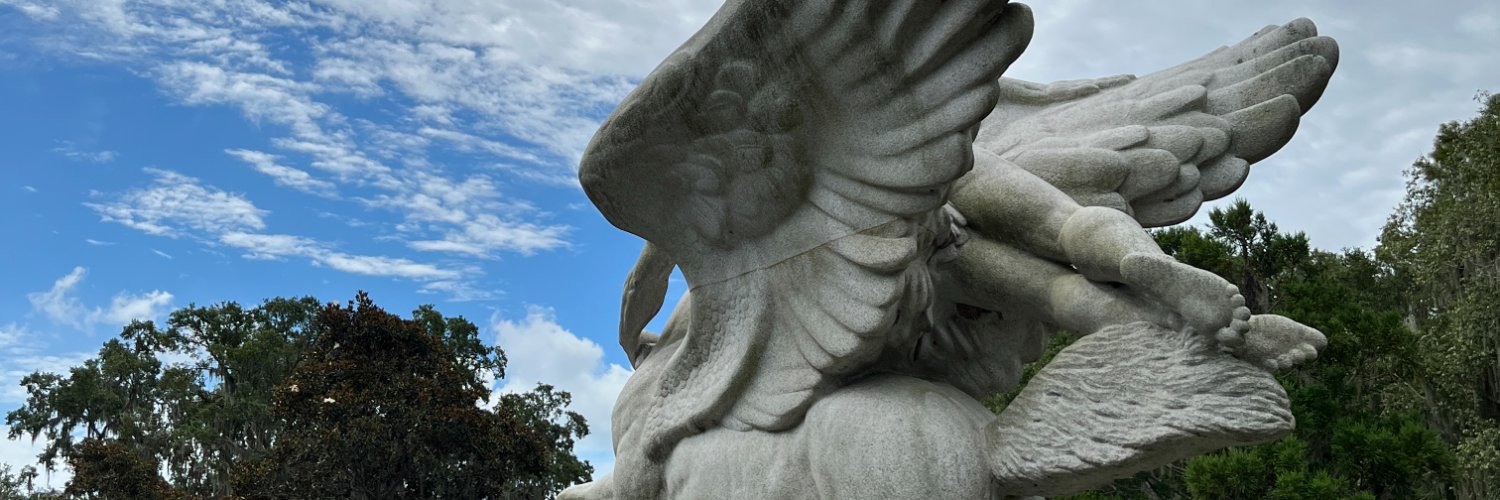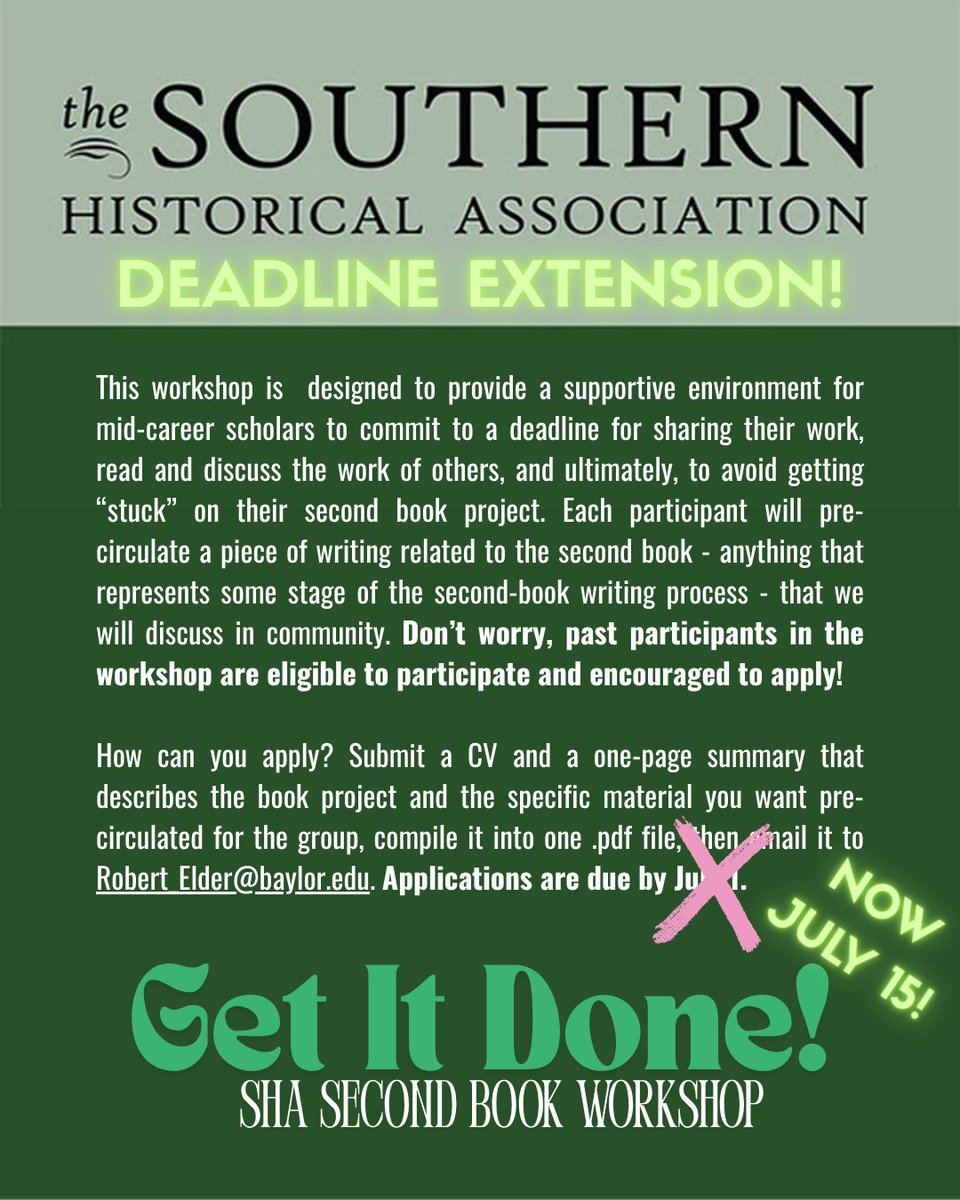
Bob Elder
@southernphd
Historian of the American South @baylor; wrote a bio of John C. Calhoun for @BasicBooks.
I wrote about the lack of administrative support for the liberal arts in @nytimes. The standard story we hear is that students don't want it. But a darker reality is that even when it wins big with students and donors it loses with those in power. nytimes.com/2025/07/17/opi…
"@GutkinLen: When did you begin noticing this phenomenon? @ashleytrubin: I first started noticing when a number of historians started to become interested in prisons. All of a sudden, in the 2010s, a bunch of historians became interested in mass incarceration. But they didn’t…
JUST ANNOUNCED: Robert Earl Keen & Friends—Applause for the Cause Aug 28 | Whitewater Amphitheater Tyler Childers • Miranda Lambert • Cross Canadian Ragweed • Ryan Bingham + more 100% of proceeds to TX Hill Country flood relief 🎟 On sale Fri @ noon whitewaterrocks.com
Really interesting take on the revival of nullification today and the updated, evolving forms it’s taking, from the author of the excellent recent biography, Calhoun: American Heretic
Nullification is associated with right wing radicalism, especially South Carolina in 1832, and southern segregationists in the mid-20th c. It's often portrayed as a fringe political theory. One of the things I try to show in this piece that in the early republic the idea of…
Nullification is associated with right wing radicalism, especially South Carolina in 1832, and southern segregationists in the mid-20th c. It's often portrayed as a fringe political theory. One of the things I try to show in this piece that in the early republic the idea of…
There is no principled support *or* opposition to federalism that has not been deferred when it blocked a significant policy change by *either* emancipatory or reactionary thinkers, activists, and politicians. If the stakes are high enough, federalism is purely expedient.
Nullification is associated with right wing radicalism, especially South Carolina in 1832, and southern segregationists in the mid-20th c. It's often portrayed as a fringe political theory. One of the things I try to show in this piece that in the early republic the idea of…
Much like the public land sales that were originally in the Big Beautiful Bill, the proposed 2026 Fiscal Year budget includes zeroing-out of the National Historic Records and Publications Commission (NHPRC) and proposes the elimination of the National Endowment for the Humanities…
Truly bizarre arc for the University of Tulsa: From trashing its humanities program (city-journal.org/article/storm-…) to embracing a revivalist program under @jennfrey to abandoning the new effort, all in just six years: x.com/jennfrey/statu…
Now for some personal news: today is my last day as Dean. I was stunned to be informed by our new provost there will no longer be a Dean of Honors, period. Nor an Assistant Dean. Rather, I was told there will be a “director” of honors--but that person will not be me. (12/21)
Deadline extended to July 15! Get your application together for this great workshop, offered by the SHA. We'll gather in St. Pete Beach this fall for a wrap up lunch.

I love Plain Style. Recommend it to grad students all the time.
In my latest @ProvMagazine, I appreciated the chance to write about Christopher Lasch's *Plain Style* and his general philosophy for teaching writing--and why good writing is a project of civilizational significance. providencemag.com/2025/07/christ…
Hess is a regular at @NRO and a director of education research at @AEI. And he thinks the forced resignation of Jim Ryan at UVA crossed a line.
For those asking about my take on the Jim Ryan/UVA situation, here’s my take: As one who was bullied out of the University of Virginia 23 years ago, I find this a very personal dispute. We need to address campus misconduct. I have written at length on that topic and am, in…